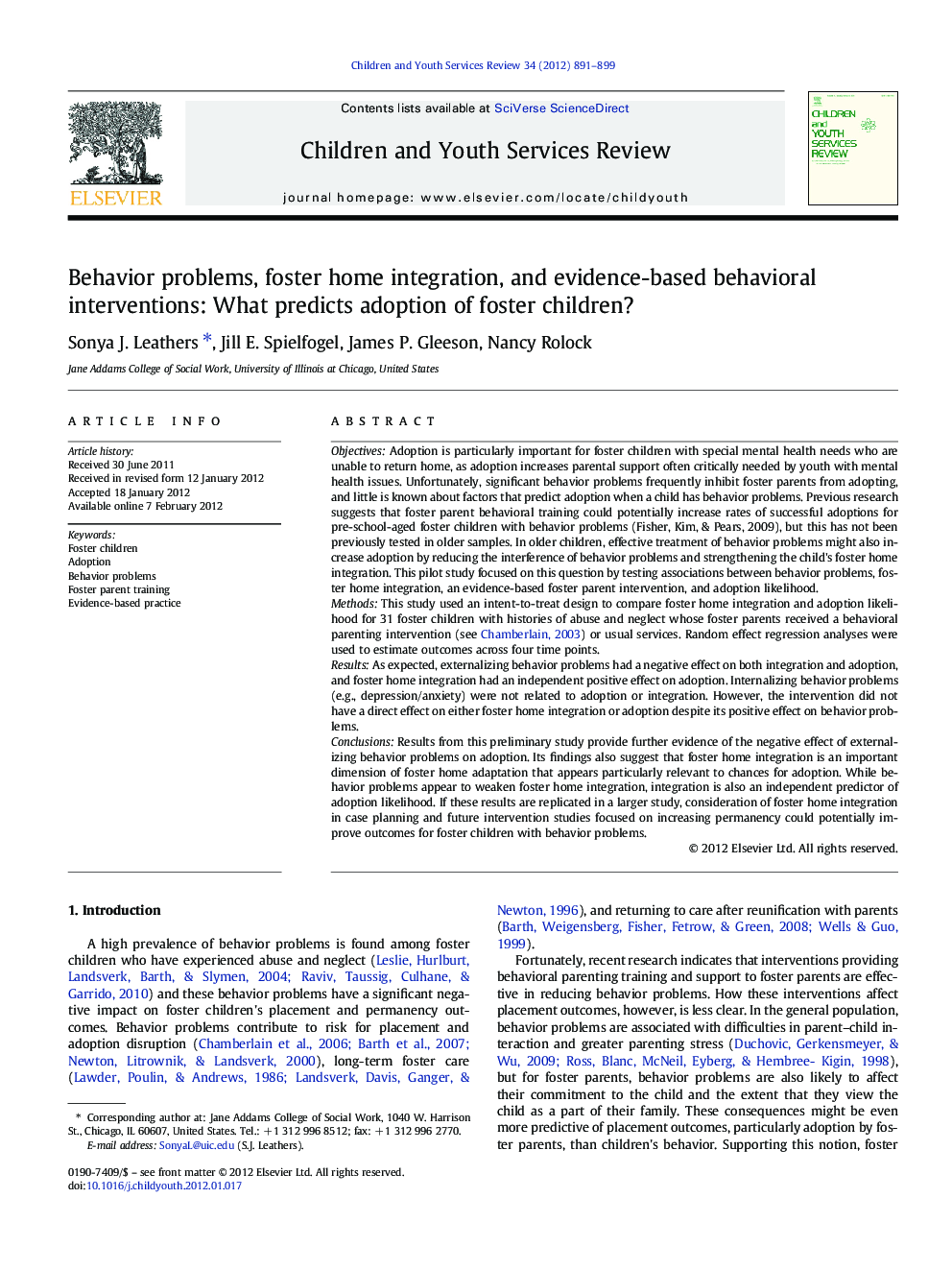| کد مقاله | کد نشریه | سال انتشار | مقاله انگلیسی | نسخه تمام متن |
|---|---|---|---|---|
| 346524 | 617822 | 2012 | 9 صفحه PDF | دانلود رایگان |

ObjectivesAdoption is particularly important for foster children with special mental health needs who are unable to return home, as adoption increases parental support often critically needed by youth with mental health issues. Unfortunately, significant behavior problems frequently inhibit foster parents from adopting, and little is known about factors that predict adoption when a child has behavior problems. Previous research suggests that foster parent behavioral training could potentially increase rates of successful adoptions for pre-school-aged foster children with behavior problems (Fisher, Kim, & Pears, 2009), but this has not been previously tested in older samples. In older children, effective treatment of behavior problems might also increase adoption by reducing the interference of behavior problems and strengthening the child's foster home integration. This pilot study focused on this question by testing associations between behavior problems, foster home integration, an evidence-based foster parent intervention, and adoption likelihood.MethodsThis study used an intent-to-treat design to compare foster home integration and adoption likelihood for 31 foster children with histories of abuse and neglect whose foster parents received a behavioral parenting intervention (see Chamberlain, 2003) or usual services. Random effect regression analyses were used to estimate outcomes across four time points.ResultsAs expected, externalizing behavior problems had a negative effect on both integration and adoption, and foster home integration had an independent positive effect on adoption. Internalizing behavior problems (e.g., depression/anxiety) were not related to adoption or integration. However, the intervention did not have a direct effect on either foster home integration or adoption despite its positive effect on behavior problems.ConclusionsResults from this preliminary study provide further evidence of the negative effect of externalizing behavior problems on adoption. Its findings also suggest that foster home integration is an important dimension of foster home adaptation that appears particularly relevant to chances for adoption. While behavior problems appear to weaken foster home integration, integration is also an independent predictor of adoption likelihood. If these results are replicated in a larger study, consideration of foster home integration in case planning and future intervention studies focused on increasing permanency could potentially improve outcomes for foster children with behavior problems.
► Examined behavior problems, foster home integration, and adoption chances over time.
► Behavior problems predicted lower foster home integration.
► Foster home integration and behavior problems independently predicted adoption.
► The intervention did not significantly increase foster home integration.
► Integration is potentially critical to foster home adaptation and adoption chances.
Journal: Children and Youth Services Review - Volume 34, Issue 5, May 2012, Pages 891–899